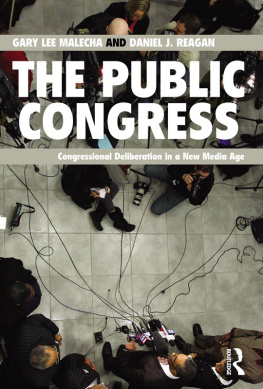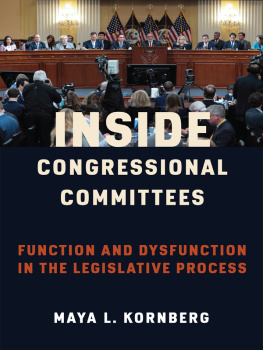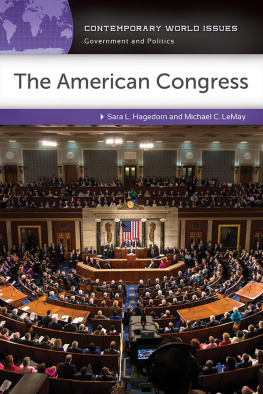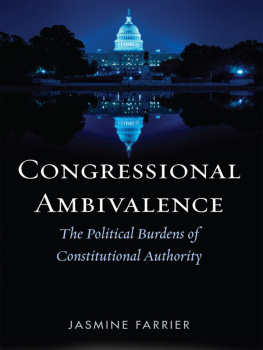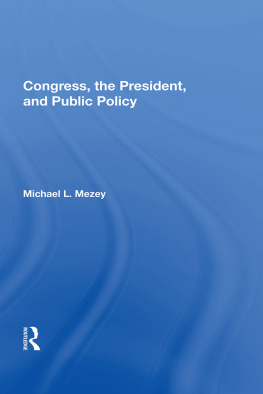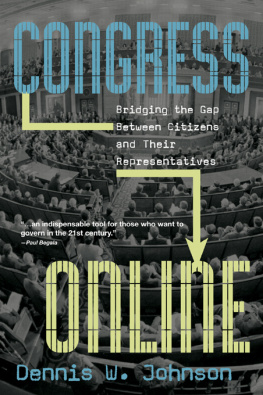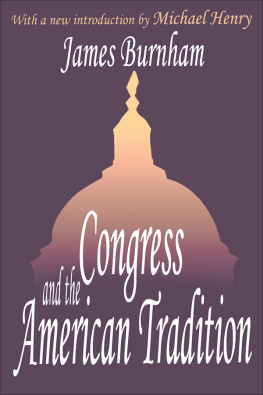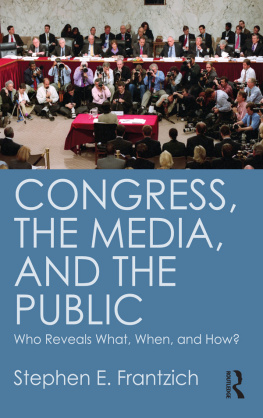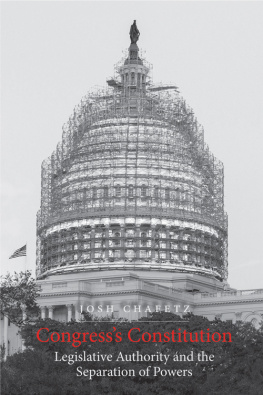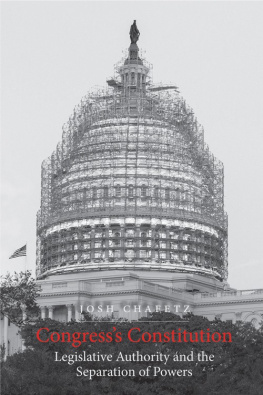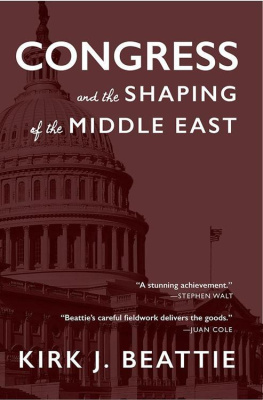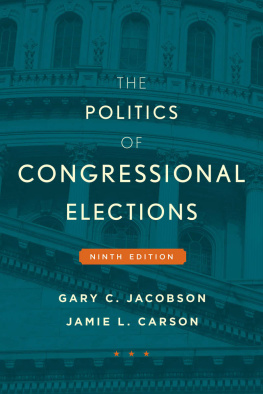The Public Congress
Contemporary members of Congress routinely use the media to advance their professional goals. Today, virtually every aspect of their professional legislative life unfolds in front of cameras and microphones and, increasingly, online. The Public Congress explores how the media moved from being a peripheral to a central force in U.S. congressional politics. The authors show that understanding why this happened allows us to see the constellation of forces that combined over the last fifty years to transform the American political order.
Malecha and Reagans keen analysis links the new public Congress and the forces that are shaping political parties, the Presidency, interest groups and the media. They conclude by asking whether the kind of discourse that this new media environment fosters encourages Congress to make its distinctive deliberative contribution to the American polity. This text brings historical depth as well as coverage of the most current cutting-edge trends in the new media environment and provides an exhaustive treatment of how the U.S. Congress uses the media in the governing process today.
Gary Lee Malecha is Associate Professor in the department of Political Science at University of Portland.
Daniel J. Reagan is Associate Professor in the department of Political Science at Ball State University.
The Public Congress
Congressional Deliberation in a New Media Age
Gary Lee Malecha
Daniel J. Reagan
First published 2012
by Routledge
711 Third Avenue, New York, NY 10017
Simultaneously published in the UK
by Routledge
2 Park Square, Milton Park, Abingdon, Oxon OX14 4RN
Routledge is an imprint of the Taylor & Francis Group, an informa business
2012 Taylor & Francis
The right of Gary Lee Malecha and Daniel J. Reagan to be identified as author of this work has been asserted by him/her in accordance with sections 77 and 78 of the Copyright, Designs and Patents Act 1988.
All rights reserved. No part of this book may be reprinted or reproduced or utilised in any form or by any electronic, mechanical, or other means, now known or hereafter invented, including photocopying and recording, or in any information storage or retrieval system, without permission in writing from the publishers.
Trademark Notice: Product or corporate names may be trademarks or registered trademarks, and are used only for identification and explanation without intent to infringe.
Library of Congress Cataloging in Publication Data
Malecha, Gary Lee, 1955-
The public Congress : Congressional deliberation in a new media age / Gary Lee Malecha, Daniel J. Reagan.
p. cm.
1. United States. CongressPublic relations. 2. Press and politicsUnited States.
3. Communication in politicsUnited States. I. Reagan, Daniel J. II. Title.
JK1131.M35 2011
328.73dc23
2011028569
ISBN13: 978-0-415-89427-2 (hbk)
ISBN13: 978-0-415-89428-9 (pbk)
ISBN13: 978-0-203-80677-7 (ebk)
For Linda and
Catherine, Andrew and Jane
Acknowledgments
As we near the end of this project, it is a pleasure to recall here all those who helped us along the way. We are both fortunate to have colleagues who provide a stimulating and collegial academic environment. The faculty in the Department of Political Science at the University of Portland and those in the Department of Political Science at Ball State University inspire and sustain us by the way they conduct their professional lives. They demonstrate that it is indeed possible for smart and passionate people to explore complicated questions in a friendly way, even when they dont always agree. We have been equally fortunate to have colleagues in other departments who provided support and encouragement on more than one occasion.
We also thank the administrations at both Universities for giving each of us a sabbatical, which allowed us to give sustained attention to our work at critical moments in its development.
The Dirksen Congressional Center and the American Political Science Association granted us awards that gave us the financial resources to complete different parts of our research, and we are grateful for their support and confidence.
Meredith Gard, Kristopher Kritzler, and Max Walling not only provided talented research assistance, but their willingness to engage in conversations about our study sharpened our analysis.
Dr. Jane A. Little and Dr. Thomas H. Hostetter not once, but twice generously opened their home to us when we interviewed congressional communications staff in Washington, DC, and they were gracious enough to act as if there wasnt anything more in the world they wanted to do than to listen to us talk about the changing congressional/media relationship.
We also want to thank our editor Michael Kerns and the staff at Routledge for their support and generous assistance as we brought our project to completion. We are also grateful for the insights provided to us by the anonymous reviewers who read and commented on our manuscript.
We also want to acknowledge those members of congressional staffs and those in the DC press corps who consented to be interviewed for this project and shared with us their insights about congressional communications and DC politics.
Finally, we are both fortunate to have loving families who supported us and who, on more than one occasion, graciously gave up time and accommodated their schedules so that we could complete this work. It is to those loving and generous individuals that we dedicate our work.
Observers of contemporary American politics frequently underscore the role media and public relations activities play in governance and policymaking. It is not uncommon these days to read about politicians governing with the news or governing by campaigning and how the strategy of going public has displaced conventional bargaining and coalition building activities.
While these accounts usually center on the White House, and how the president tries to advance the administrations goals by strategically mounting public appeals, those at the other end of Pennsylvania Avenue also engage in public relations activities, both to get reelected and to advance their power and policy goals.
Congressional parties, meanwhile, devote substantial time to honing their messages and proliferating communications plans to shore up what they now commonly refer to as their brands.
It has not always been this way. For much of the first half of the twentieth century, most lawmakers who eagerly sought publicity by getting in front of cameras and overtly pushing themselves in headlines and lead paragraphs of news accounts were disparagingly referred to as show horses and mavericks. More often than not, they were ostracized and treated as marginal players on Capitol Hill. The prevailing normative structure of the institution instead provided members with incentives to labor quietly, and cooperatively, behind closed doors on committees to which they were assigned.
Just how we got from there to where we are today is the complex tale this work addresses. It is a story with many parts, and it is one that continues to unfold. It is also an account that brings to the fore questions concerning Congresss ability to function as a deliberative body and leads us to consider whether todays more public institution reflects and contributes to a political order that is at odds with the regime fashioned by the Framers of the Constitution.

